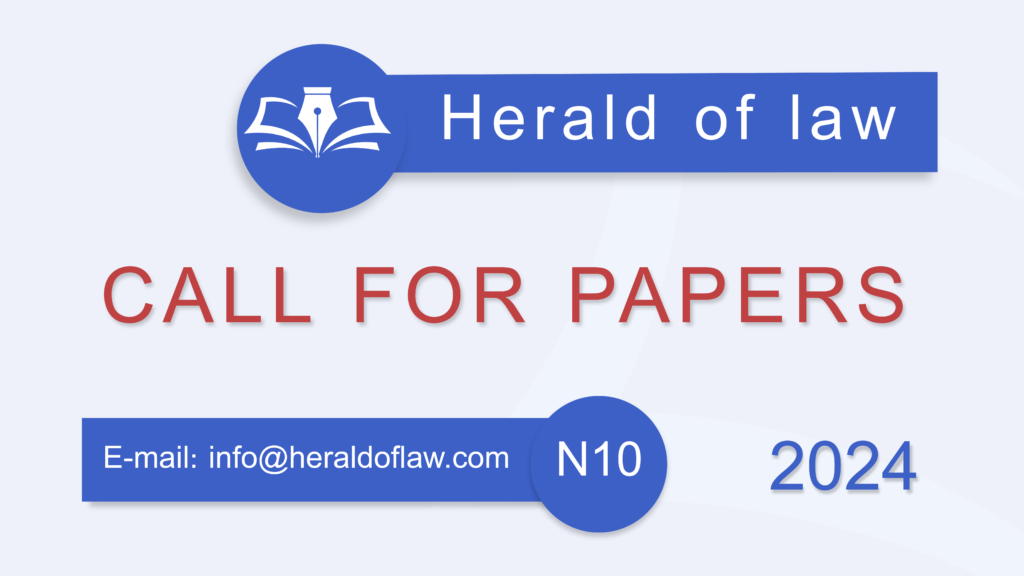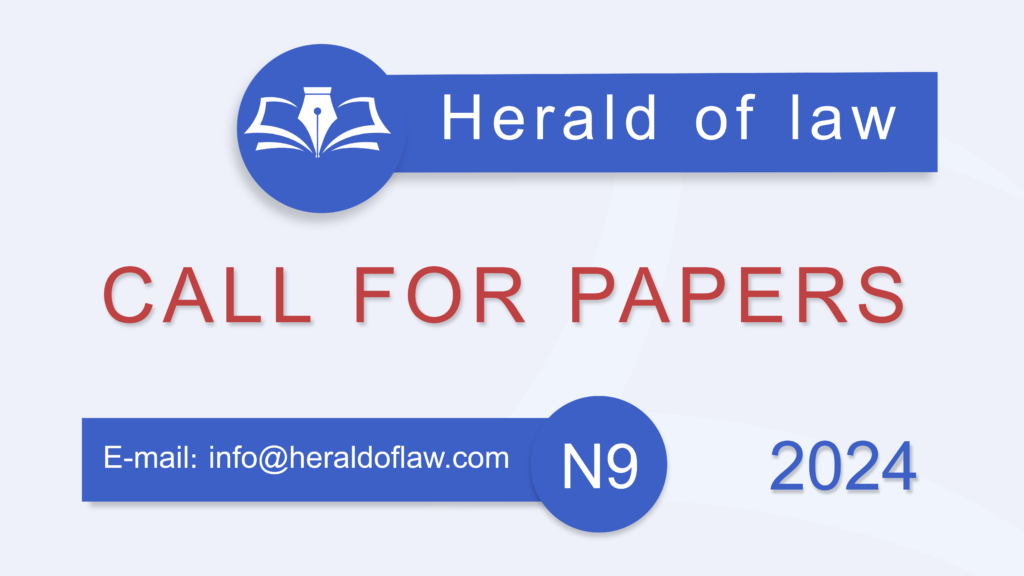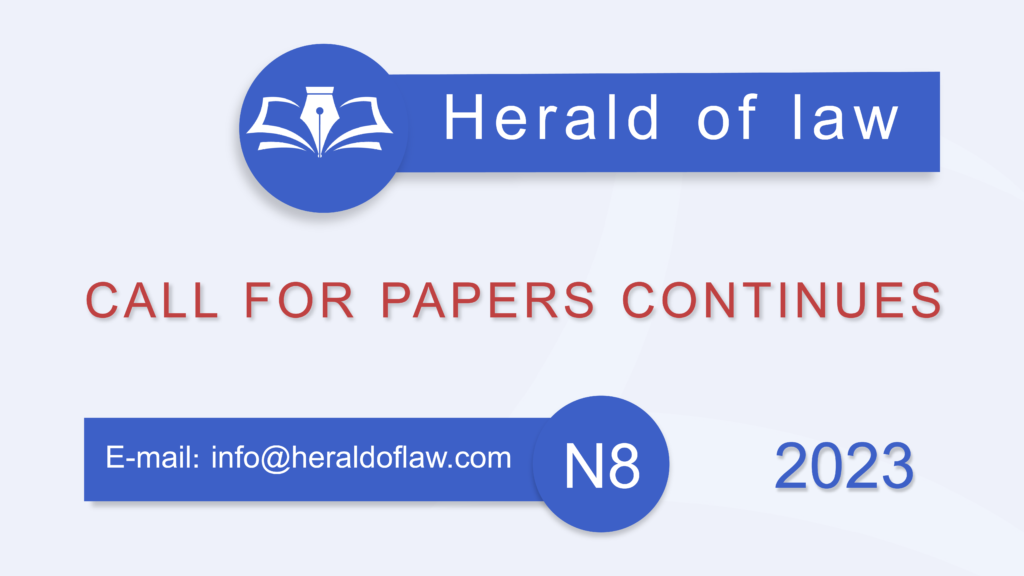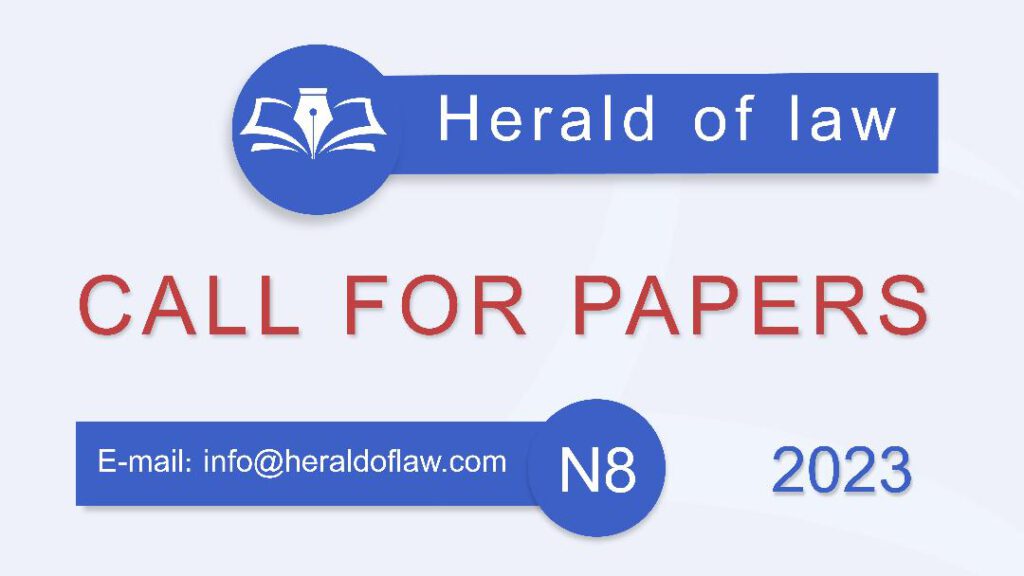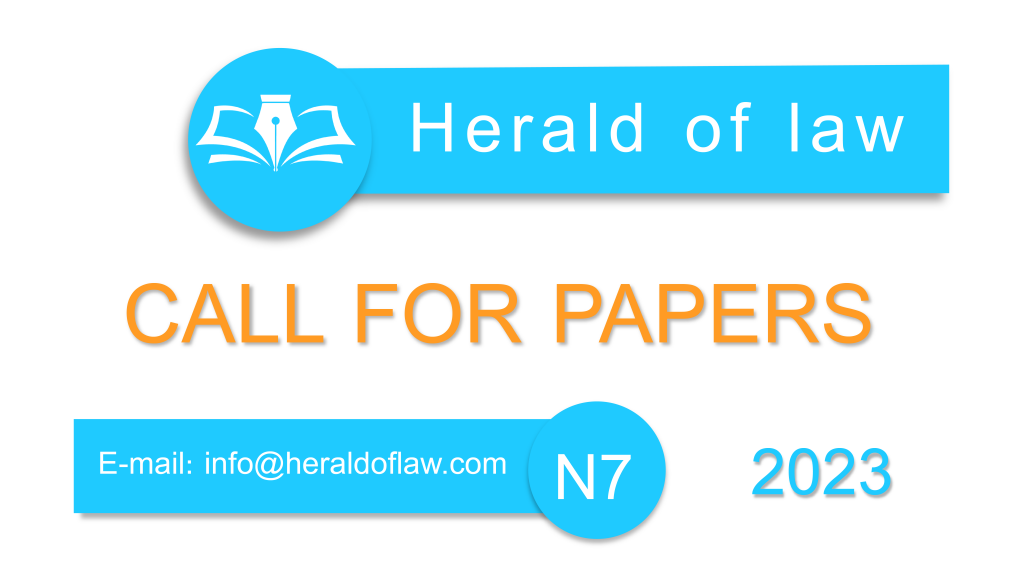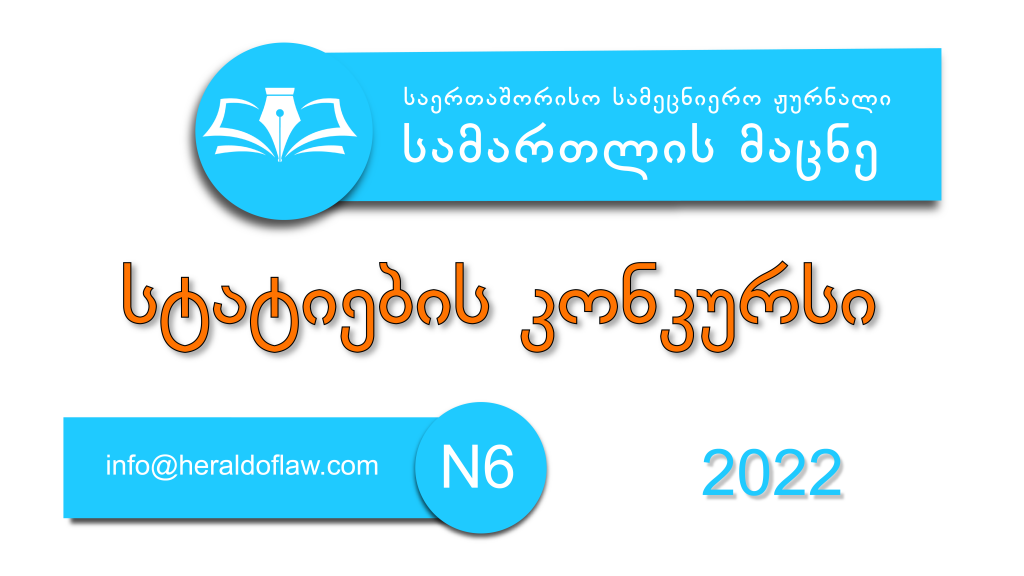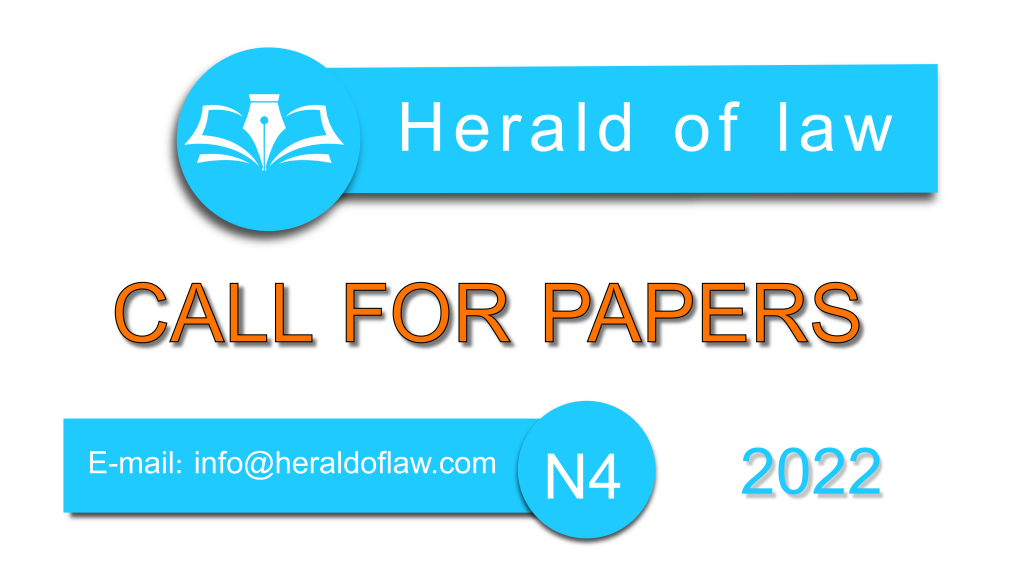Rules of reviewing thesis
Reviewers
Thesis will be sent to two reviewers. The reviewers will be selected by Chief editor. Chief Editor is sending thesis to two reviewers the reviewer should be a highly qualified Georgian / foreign law scientist / researcher whose specialty is closest to the topic of the thesis.
Together with article, Article Evaluation Form is sent to reviewer, which includes article evaluation criteria.
In Article Evaluation Form The relevant scores are pre-determined for all criteria, according to which the reviewer evaluates the article.
Main concepts or review
Review process should be clear and fair. The author’s personal criticism is restricted. Any selected reviewer who considers himself incompetent in reviewing the article, or who believes that timely review of the article will be impossible, must timely notify the editor and refuse the review.
Double-blind peer review
Selection of the scientific articles in the journal through by the open contest and double-blind peer review ensures a high scientific quality of the published articles.
Review dates
Article review deadlines may vary from specific situation, but may not exceed 10 banking days. This term for English article is 12 banking days.
Reviewer’s recommendations and comments
If the reviewer wishes, during the process, can give to the author some technical or other recommendations and comments. If the author will wish he can change the article according recommendations and comments. Within the time limit set the author’s final article is resubmitted to the same reviewer for review.
Review form
Review is made on the basis of special criteria. Original version of articles is kept in the archive of journal during 3 years.
Results of the review
The review may be positive or negative.
Each review will be considered positive, with at least 70 points..
Review of the article is considered successful if both reviews are positive.
The total score of each article is calculated by adding both positive scores.
If one estimate from the two reviewers is positive and the second reviewer is negative and the negative estimate at least is 60 points, The Editor-in-Chief of the journal may submit an article for final evaluation to the Scientific Council of the Journal for a final decision. In such case, the review of the article will be considered to be carried out successfully, if the article is evaluated positively by the editorial board.
The identity of the author remains confidential from the Scientific Council of the journal, although the composition of the Scientific Council itself can not be confidential, as its composition is public.
The reviewers as well as the members of Scientific Council are independent and impartial in the process of the review.
The article will be successful if the evaluation of the third reviewer is positive.
The author will be notified about the review results by email.
The journal will publish articles which have the highest scores according the quota for publication (no more than 15 article).
| Actuality of the article
Maximum 15 Article’s argumentation and logic Maximum 25 Language and style of the work Maximum 20 Novelty of research Maximum 25 Novelty and quality of references used Maximum 15 Total assessment score of the scientific article Maximum 100 |




